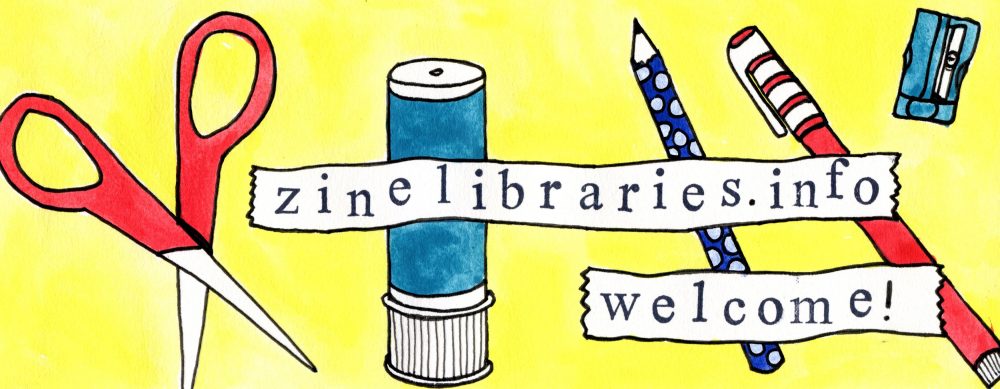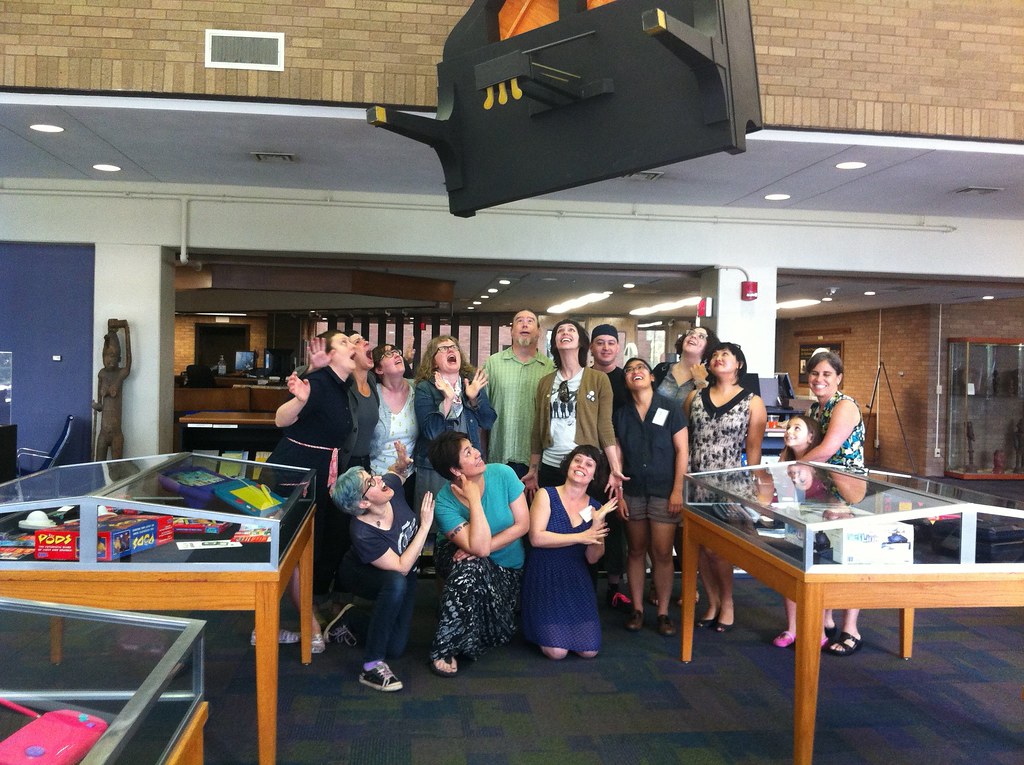Topic: Acquisitions / “In Scope Enemyâ€
Explanation: The importance of having an acquisition policy. Indie/barefoot libraries often coming around to acquisition policy need post-library/collection start—how to decide and put one in a visible place? Additionally, what do you do when you get the kind of in scope material that you never thought you’d receive?
Facilitator: Lisa
Note taker: Celina
Discussion Notes:
-         QZAP’s policy addresses what is zines in addition to what’s a queer zine based on content, creator’s self-identification/expression gender/identity. They also have some queer flyers. (Milo)
-         IPRC … would like info on “hierarchical acquisition policies as contrary to the nature the community that may be†– Lillian
-Â Â Â Â Â Â Â Â Â Acquisition policies are a great tool for saying no politely
-Â Â Â Â Â Â Â Â Â Collection decisions typically motivated by community building and preservation. Questions: What are the expectations? Is there a possible theoretical issue here? (Jan)
-Â Â Â Â Â Â Â Â Â The line between acquisition policies and library/project missions are often murky
-         Personal value judgments related to not only the mission behind the collection but also the needs/wants/priorities of the space. “I want local zines that are not off the charts obscene or hateful.†– Jude
-         IPRC, for example, makes sure to place no value judgments even in record creation on “obscene†materials (Lillian)
-         Papercut rarely gets hate materials but they do have a category called “bullshit,†stored in a box in the basement for people doing anti-fascist work (Kimberly)
-Â Â Â Â Â Â Â Â Â Usefulness in documenting and preserving the historical trajectory of a movement or a publication (this can often mean embarrassingly bad writings, art, etc.)
-         Important to consider the value of resources, “effort into access†(Kelly M.) and often limited shelf space; Sometimes it’s just enough to know that it exists/available if you ask the right person
-         Work that is a “pain in the ass†to catalog or make accessible but then prove to be worthwhile because of one thing (radical newspapers from Germany / Berlin wall). “I wake up thinking about our backlog†– Lillian, IPRC
-Â Â Â Â Â Â Â Â Â Possibility of prioritizing acquisitions based on user stats, if available. (Jennifer)
-         In the decision to give away collections, “these things need to be kept but do they need to be kept here.†(Katie)
-         Flipside of accession policies = the deaccession policy, and it’s just as important. Priorities shift when there’s a clear availability elsewhere (Jeremy)
-         “That’s why we need the union catalog!†– Lillian
-Â Â Â Â Â Â Â Â Â The listserv is helpful in the meantime (Jennifer)
-         IPRC has very specific stats that show when and what people are reading. “One-handed cataloging.†😉
-Â Â Â Â Â Â Â Â Â Helpful for polices to address why we say no, but explaining why things take long. Your resources have a place in your collection development policy. Managing expecations. (Lisa)
-         Zine “scopeâ€â€”the difficulty of explaining (continuously) to authorities who don’t get it, or think they do and then don’t anymore (Celina)
-Â Â Â Â Â Â Â Â Â Tying the scope into existing areas of a larger archive/collection
-Â Â Â Â Â Â Â Â Â Writing an FAQ
-Â Â Â Â Â Â Â Â Â Comparing zines as another format, e.g. letters, to administrators (Kelly W.)
-         “Hit by a bus†scenario is another reason why policy creation is vital (Milo)
-         IPRC maker space / donation station. “If you make a zine, catalog it†and gaming approach to backlog management. (Lillian)
-         Are there creative ways to use numbers without sounding like an asshole? Make it visible? “zine purgatory†pictures (Lillian)
-         Note the mistake of seeing “DIY†as “do it BY yourself†(Lisa)
-         Ask for lists prior to donation. You can say ‘no’ before it comes in the mail, but some people may still ignore the website language and drop off things.
-Â Â Â Â Â Â Â Â Â Keep a listing of removed zines and reasons why they were not kept–duplicate, out-of scope, etc. (Kimberly)
-Â Â Â Â Â Â Â Â Â Indie/barefoot libraries have the added benefit of using out-of-scope/deaccessioned materials for funding, grab bags, etc. (Cue the bidding war for smutty UK comics.)
-Â Â Â Â Â Â Â Â Â Useful document: SAA Guidelines for Reappraisal + Deaccessioning
Action Items:
1)Â Â Â Â Â Everyone: If you have an accession and deaccession policy, please share it for a future page on zf.info about how to and why create an acquisition policy.
2)Â Â Â Â Â Milo and Lisa will be working together on the above mentioned page.
3)Â Â Â Â Â Lillian WILL remove the give-us-all-the-things language from the IPRC website.

